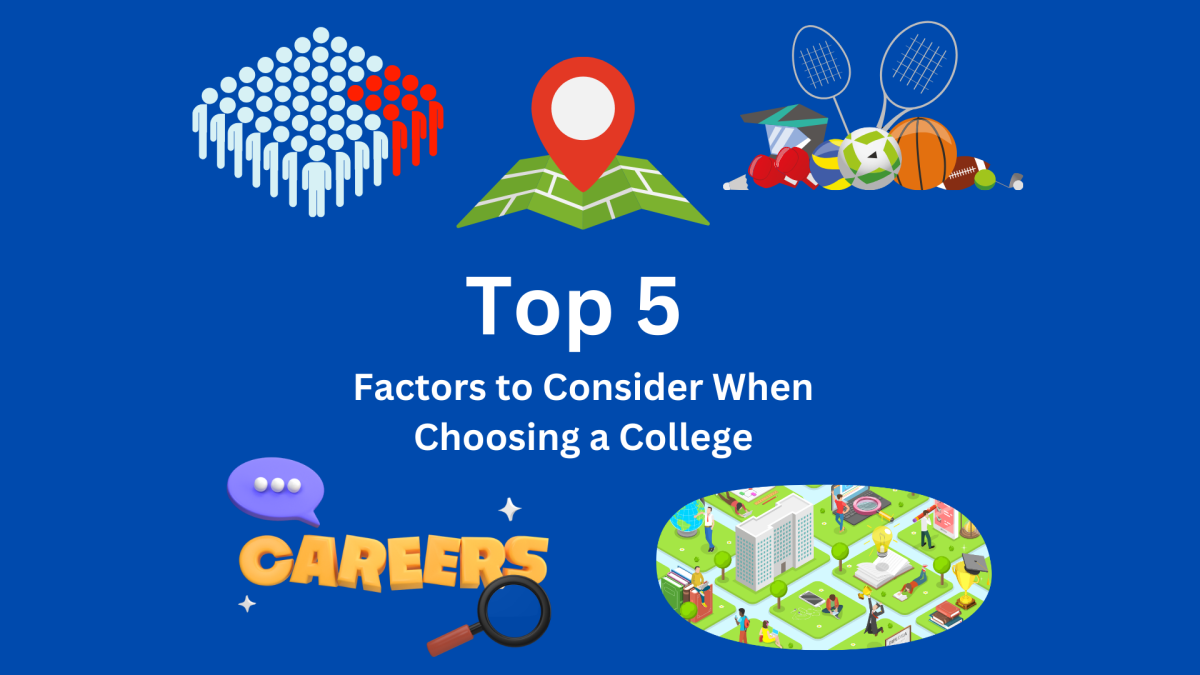Attention juniors! As you’re preparing for college application season, it’s time to start making your college list. With thousands of both private and public universities to cater to all of your academic interests, narrowing down a list of 10-15 colleges to apply to can seem like an almost impossible task. But, don’t worry. As your senior mentor, I’m here to share with you some of the factors I considered when creating my college list. So get ready! It’s time to roll up your sleeves, open up a blank spreadsheet and follow along these top five factors as you put together your college list.
Just a quick side note, I am omitting cost from this list because this is something that varies for each individual due to scholarship opportunities and financial aid. But, it is still an important and valuable factor to consider as well.
Good luck with your college endeavors!
#5 School Size (Undergraduate Enrollment Population)
School size is an important factor to consider in selecting a college that is the right fit for you. Some students prefer a college that has a smaller student population while others prefer a larger population. Smaller-sized schools can be good for a student who is looking to have small class sizes, get to know their professor on a more personal level and have a closer-knit community with their class. However, small school sizes can also have the downside of everyone knowing each other so there may be a lack of privacy and there might also be limited diversity among students. It’s important to recognize that school size is very different from the undergraduate enrollment population. School size can include the graduate student population as well which is not an accurate representation of the school. Therefore, make sure that you research the undergraduate enrollment of each school that you’re looking at and compile the numbers together to figure out which is the most suitable for you.
#4 Campus Culture
Campus culture can provide you valuable insight on whether you feel comfortable living in the college environment for four years. Many colleges offer Greek Life or extracurricular clubs and intramural sports that you can join. Participating in these campus activities can increase your connectedness to your college community. If you want to be involved in campus activities, make sure you look on the college websites to see what clubs and cultural organizations they offer. Some colleges have more diverse options of clubs because they may have a higher international student population. It’s also a good idea to check out what the day-to-day life looks like for a typical student at the university. Pro-tip: By attending campus visit days, you can ask current students what they do in their off-time such as where they go to study, their favorite campus cafes and even study abroad opportunities if that’s something that interests you.
#3 Location
Evaluating the location of a college is important because, during the weekends, you want to be able to stroll off-campus and visit nearby cafes, stores and restaurants for a way to relax after a long week of studying and classes. If you can’t visit campus, pull up the school on Maps and check out the nearby neighborhoods or cities. See what options are available for you to hang out with the new friends you make. If you are able to visit the school, take a stroll off campus and visit some cafes and stores. You will be able to see the neighborhood environment and see whether you can picture yourself being there for four years. You will be able to see the locals who live in the area (not just the college students) and get a feel for whether this college can offer you an abundance of social events and off-campus activities. If you prefer a suburban setting, finding a college that is away from towns can be a more peaceful and serene setting. If you prefer a city setting, you will want your college to be in close proximity to a high-energy city. There are many options to suit your personal preferences.
#2 Career Opportunities and Connections
Career opportunities and alumni connections are also other key factors to consider when selecting a college. Many college websites have pages where you can read more about the alumni that have graduated from the university. They also provide information regarding internship opportunities for you to learn more about so you can see whether the college has adequate opportunities for you to find post-graduation. Even though it’s still early to look at future career opportunities, it can be a useful tool in evaluating whether paying for this college will be worth it. If a college has really strong connections to large companies, law firms, corporations and start-up businesses, they can connect you with the people who work there, potentially even including your future employer. Pro tip: make sure to attend career fairs at the college that you end up attending because you can start connecting with professionals in the field you’re interested in learning more about. They can give you tips on how to succeed in the field which can direct you in what classes you choose to take.
#1 Academic Majors/Minors
Lastly, the most important factor to consider is the available academic programs a particular college can offer you. If you’re going into the college application process having a general idea of what programs interest you and what degree you want to pursue, taking a look at general course requirements and past class descriptions can help you gauge whether this college fits your interests. Many colleges may allow you to double major, or have a major and a minor or even a major and two minors depending on your academic interests. That’s why it is very important to make sure you know what required classes you have to take and if there are any elective classes that pique your interest as well. Although many colleges will have overlapping majors and minors, thoroughly reading through class descriptions and professor bios can help you gain a deeper sense of whether you can see yourself sitting in on that class. If you are undecided about what area you want to pursue in college, finding a college that has an extensive listing of available majors and minors is extremely important so that you don’t feel pigeonholed in having to choose something you’re really not that interested in. Feeling confident that a college can really fulfill your expectations in the classroom through engaging seminars and lectures boosts your overall satisfaction with your college experience.










